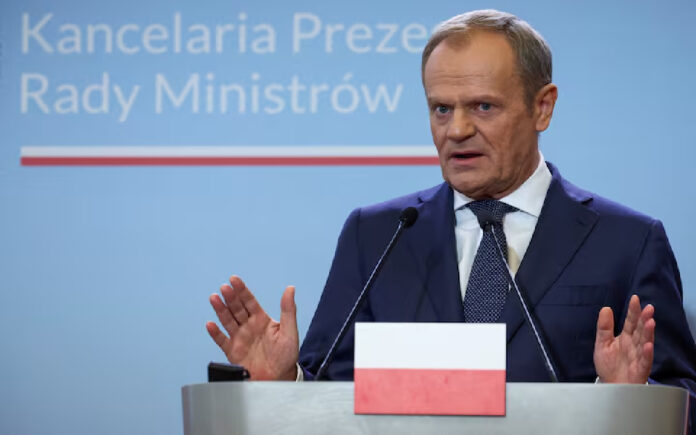Warsaw: Poland’s Prime Minister Donald Tusk aims to resurrect a commission tasked with probing Russian influence, announcing the move amidst heightened espionage apprehensions after a Polish judge, with access to military intelligence, sought asylum in Belarus.
The asylum plea by Judge Tomasz Szmydt, set to preside over cases involving security clearances for NATO and EU secrets, raised alarms in Poland, prompting investigations into possible espionage activities.
Szmydt cited political persecution in Poland and resigned, alleging policies aligning the country against Belarus and Russia. The revival of the commission, initially formed by the previous Law and Justice (PiS) government, signifies a reversal from its condemnation by Prime Minister Donald Tusk’s Civic Coalition (KO), which denounced it as a tool for political vendettas.
“We have a commission (on Russian influence), but there are constitutional reservations as to its operation,” stated Tusk after a security meeting addressing the Russian and Belarusian spy threat.
Also Read | Netanyahu Faces Dilemma Over Rafah Assault as Hostage Crisis Divides Israelis
The dormant commission, previously opposed by the European Union, is now under scrutiny for reactivation, with Tusk tasking Cabinet member Tomasz Siemoniak to devise recommendations.
Siemoniak asserted that Szmydt’s actions indicated collaboration with foreign entities, highlighting his appearances on Belarusian and Russian media criticizing the Polish government.
Meanwhile, former PiS Prime Minister Mateusz Morawiecki questioned the shelving of the commission, emphasizing that it was initially established by the Law and Justice government to investigate Russian influence, though it faced opposition boycotts.
In a separate development, Polish border officials disclosed the detention of a Russian army defector on the Belarusian frontier, prompting inquiries into his motives and affiliations.



